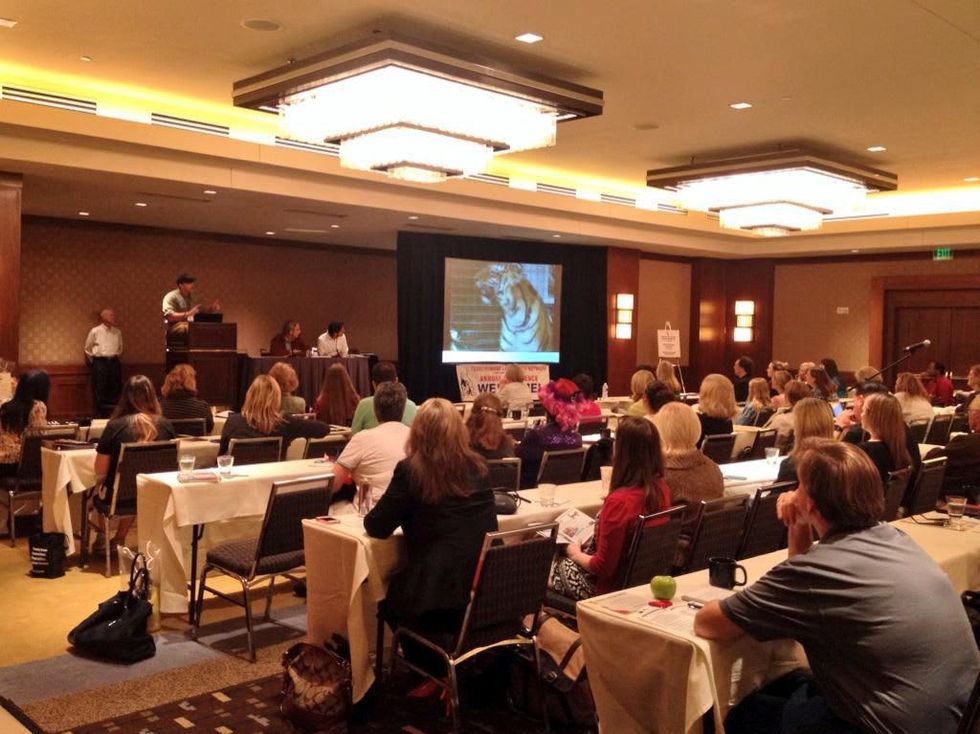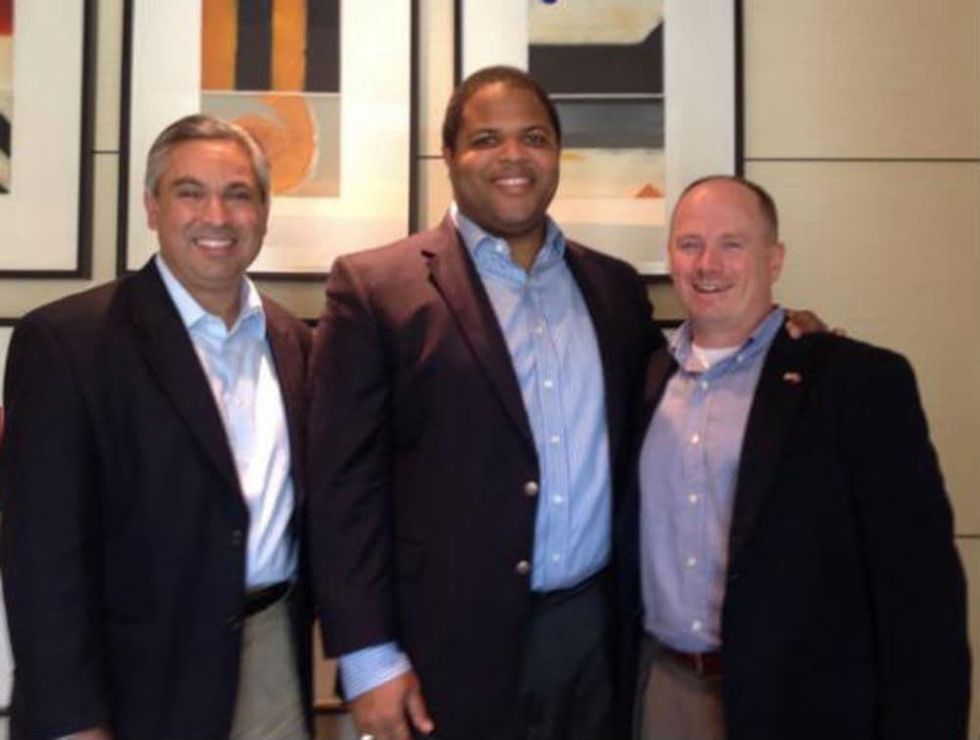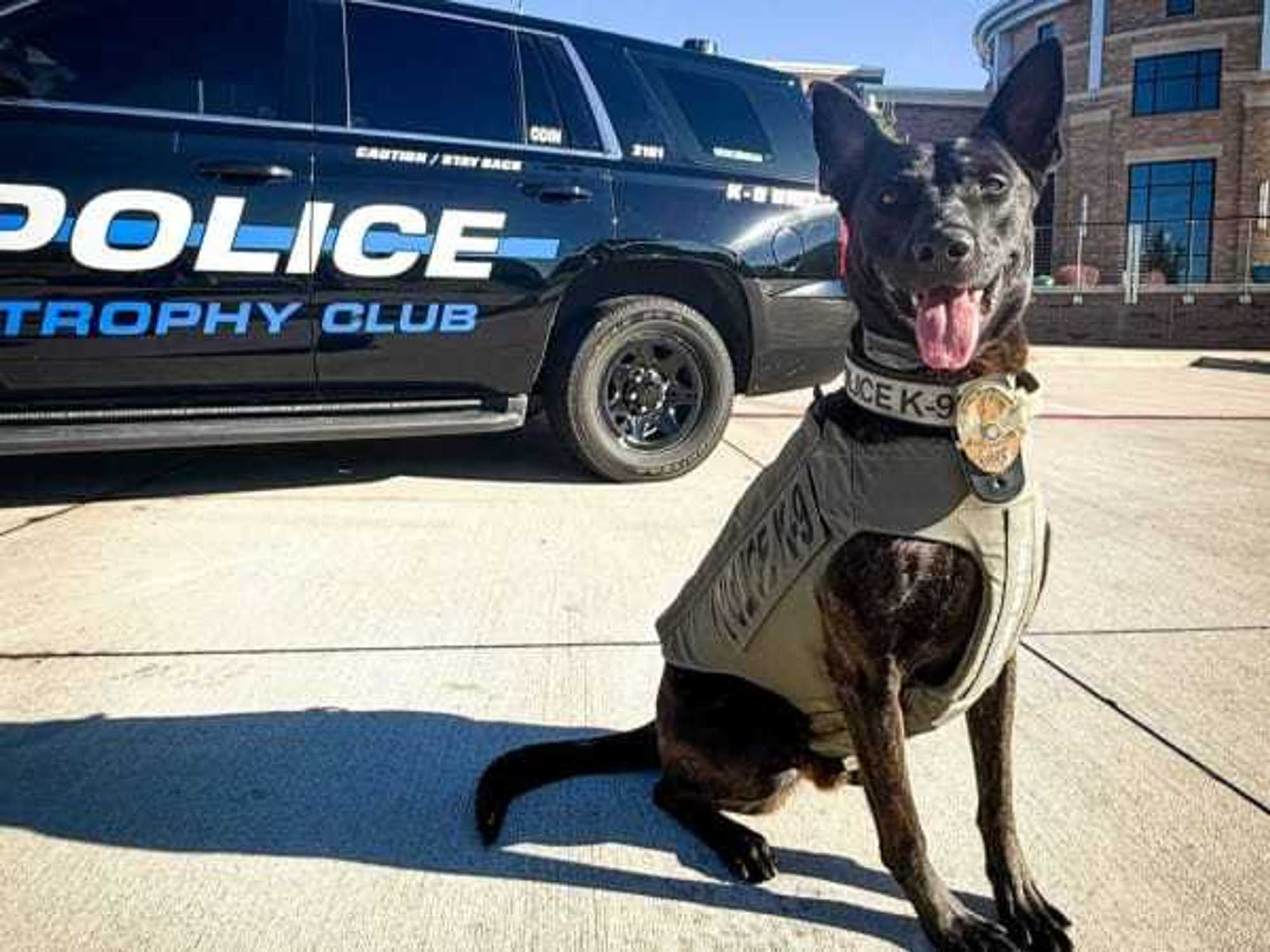Texas Humane Legislation Network
Dallas animal advocacy conference sets its sights on lions, tigers and bears
If you were trying to find the animal-advocacy conference at the Highland Dallas (formerly Palomar) hotel on September 6, you didn't have to look hard. A display of bejeweled dog statues formed an entryway to the second-floor ballroom, where animal professionals and legal eagles came together to plan legislation for 2015.
The dogs were an artful distraction, but the meeting was all business. This was the sixth annual conference hosted by the Texas Humane Legislation Network (THLN), a grassroots animal-advocacy organization based in Dallas. Established in 1975, THLN fights for laws to protect animals from neglect and abuse.
Toiling on legislation might not have the warm-and-fuzzy value that goes with rescuing a puppy. But THLN's legislative successes have had a profound impact.
The event featured noted speakers such as exotic wildlife expert and TV regular Tim Harrison, state representatives Eric Johnson and Kenneth Sheets, and veteran advocates such as Skip Trimble and Dallas Animal Shelter manager Jody Jones.
There was also an appearance by new local hero Assistant District Attorney David Alex, fresh from his victory in court the day before, when Robert Prichard was sentenced to six-and-a-half years for killing the pit bull Candy, the biggest sentence for the Dallas DA's office since the Animal Cruelty Unit was launched.
Alex, who sat on a panel on animal cruelty with Jones and Harris County District Attorney Jessica Milligan, traced the strides made in animal cruelty cases, from the sloppy forensics of early crimes to the present-day coordination between police and animal control. "We've seen the progression in how we respond," he said.
Jones urged those who report on animal cruelty to help make a better case with photos and facts.
"Don't use words like 'starving,' but instead, 'I see vertebrae through the skin,'" she said. "And unlike the people here, not everybody loves animals. To be effective, you need to find what works. For example, if you want to get your police department engaged, talk about violent crimes."
This was the first time the conference took place in Dallas — it was previously in Austin or Houston — and it drew more than 150 attendees, its largest turnout yet, with animal control officers, lawyers, veterinarians and rescue groups.
The topic of exotic pet ownership filled an entire panel, including wildlife expert and TV regular Tim Harrison.
Toiling on legislation might not have the warm-and-fuzzy value that goes with rescuing a puppy off the street. But THLN is a results-oriented group whose legislative successes have had a profound impact, with bans on dog fighting; gas chambers in animal shelters; "horse tripping"; and "canned" hunting of lions, tigers and bears. They've also improved standards at animal shelters and housing for wild animals.
Rule of three
Shelby Bobosky, THLN's legislative co-chair, outlined the three issues that the group will tackle in the 2015 legislative session: strengthening the tethering law, requiring peace officers to take canine encounter training and banning ownership of dangerous wild animals.
As for tethering, Texas has a law, but with so many limitations, it can't be enforced. "So far, there has not been one prosecution for a tethering crime," she said.
The need for police officers to undergo canine encounter training reflects the rising numbers of animal incidents. One-in-three officers encounters dogs and up to half of shootings include dogs, Bobosky said.
The topic of exotic pet ownership filled an entire panel. Chaired by THLN's Skip Trimble, it featured Harrison, a former police officer and the subject of documentary The Elephant in the Living Room, plus representatives from two sanctuaries: Howard Baskin, from Big Cat Rescue in Florida, and Ben Callison, from Cleveland Armory Black Beauty Ranch in Texas.
In the upcoming legislative session, THLN hopes to tackle strengthening the tethering law and banning ownership of dangerous wild animals.
Bobosky said that there are more than 3,000 exotic big cats in Texas, although exact numbers are not known because of the patchwork laws in place.
There were no laws in place in Zanesville, Ohio, in 2011 when 49 animals — including tigers, lions and bears — were killed by authorities after a private owner let them out of their cages and committed suicide. Baskin, who supports a ban on breeding and possession of big cats, said that, even with better laws, regulation can't work.
"There's the constant breeding of cubs for cub-petting amusements," he said. "They're always removed from their parents, and once they're too big to pet, what happens? Sanctuaries are just a band-aid."
All seemed concerned about the possibility of another Zanesville. "There's potentially the same scenario occurring all over the state that we don't know about yet," Callison said. "It's not just a taxpayer burden; it's unsafe for the community."
Other panels addressed breeder laws and effective ways to get lawmakers' attention. State Rep. Sheets reminded the group that his wife was an animal lover. "I'm getting lobbied there too," he said, to much laughter.
Trimble, whose deep involvement in animal welfare dates back to 1992, said that Texas represents a "tough climate" for animal legislation, with an agricultural industry determined to avoid having cruelty standards applied to what they do, as well as obfuscation from entities like the Zoological Association of America, who created confusion among legislators during the last session by trying to introduce their own conflicting bills.
"We all hate animal cruelty," Trimble said. "We see someone who's shot a dog or mistreated them, that's horrible stuff. But the largest number of animals who suffer is in commercial situations where people are making money off animals.
"The second-highest number of violations for underground illegal importing is animals, second only to drugs. These people will fight tooth and nail to keep making money. People don't realize how big the problem is."




 Fried rice and chicken at Dallas Spicy Chinese Cuisine. Photo courtesy of Dallas Spicy
Fried rice and chicken at Dallas Spicy Chinese Cuisine. Photo courtesy of Dallas Spicy